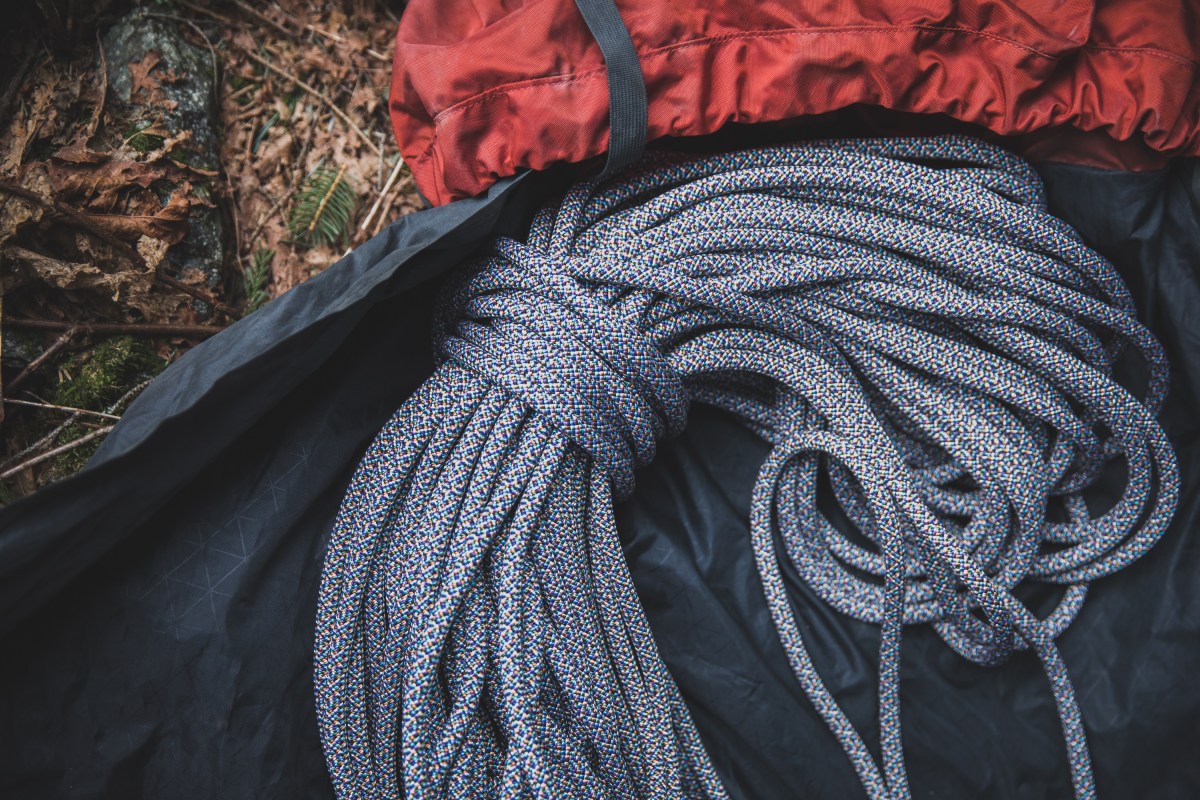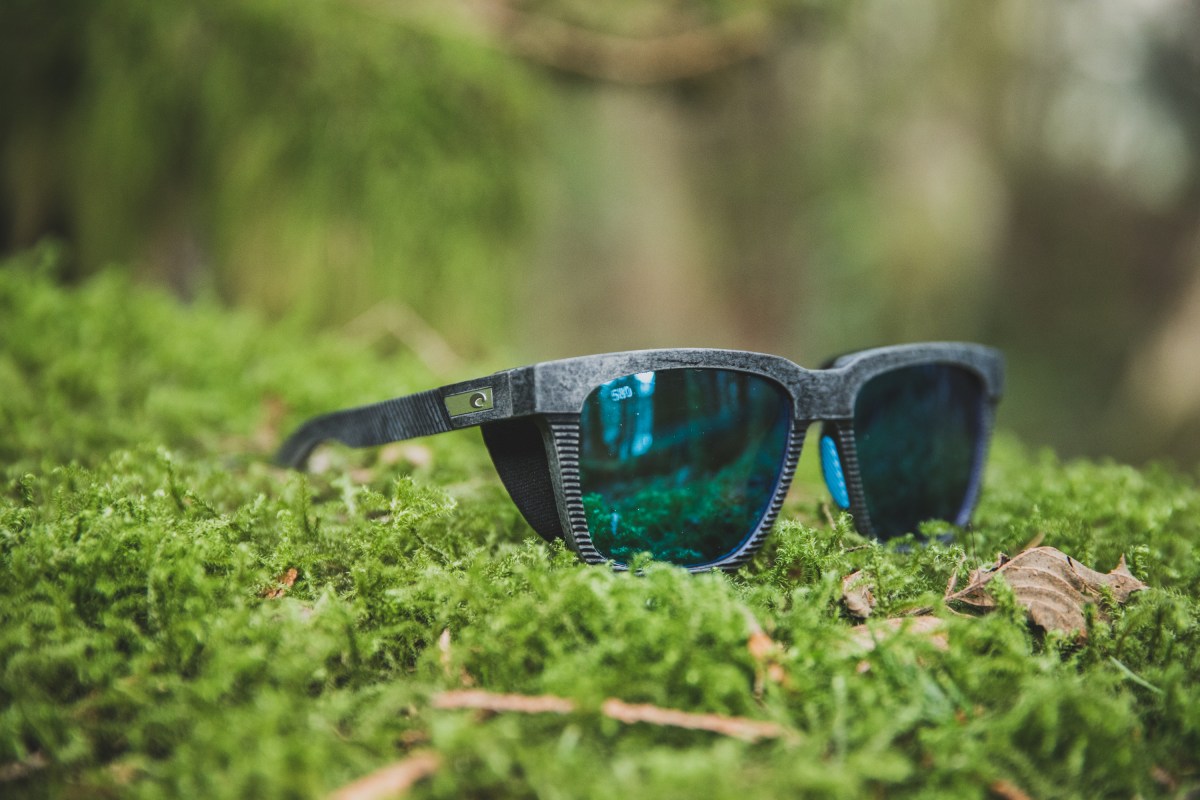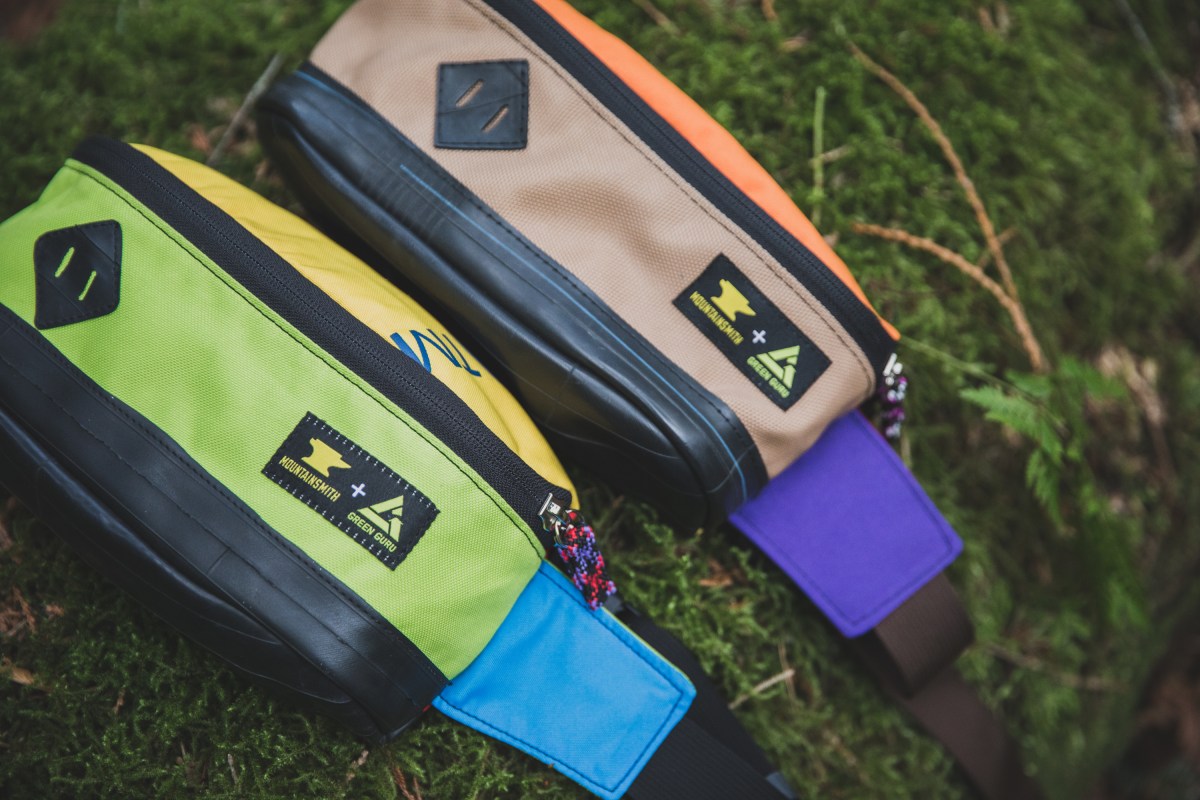As a co-op, we’re a different kind of company. We put purpose before profits and act with the long-term interests of our members in mind. Being a co-op also means we act transparently. That’s why we publish our annual Stewardship Report. It’s our way to show what we did in the previous year to get more people outside, operate more sustainably, and protect and create access to our outdoor places–none of which we could have done without you.
Since the beginning of the outdoor industry, many companies made gear and apparel without considering recyclability, focusing only on the product’s initial life. But that mindset began changing in the 1990s. Now, some gear manufacturers are thinking about maximizing both the life of the product and creating the product out of recycled and recyclable materials, says Greg Gausewitz, manager of product sustainability at REI. That way, when the product does reach the end of its life, it can be used to make even more products of all kinds—from skateboards to insulation.
Recycled materials don’t rely on the extraction of raw materials, which reduces the environmental impact across a product’s lifecycle, according to Gausewitz. Utilizing recycled materials in gear manufacturing also helps divert those items from landfills, extending the life cycle of the material extracted in the first place.
“Use of recycled materials is one of the more promising trends that we see in the creation of products,” Gausewitz said.
Take polyester, for example. It’s the most widely used fiber—with a share of more than 50 percent of global fiber production in 2017, according to the Preferred Fiber & Materials Market Report of 2018 by Textile Exchange. The report stated that just in the last 10 years, the market share of recycled polyester has nearly doubled.
We’re looking at three recycled and/or recyclable products that have changed the name of the game in the outdoor industry—pushing the bounds of what’s possible and hopefully inspiring other companies to follow suit.
Industry-Leading Recycled Rope
Edelrid Boa Eco 9.8mm Non-Dry Rope ($109.95 – $179.95)

How do you make a climbing rope, which has to pass stringent UIAA safety standards, out of recycled material? That’s the question Edelrid, a German technology company that makes climbing equipment, has asked themselves for decades.
Almost all dynamic climbing ropes are made from polyamide, a plastic that is melted down and forced into a nylon yarn that is then twisted together to create a strong, durable rope, according to Edelrid. If rope manufacturers were to follow a similar process to create recycled yarn—melting down a variety of used or old plastic materials—they wouldn’t be able to guarantee a similar quality or strength as they would with new polyamide. And with a climbing rope, the need for uniform strength is critical—after all, people’s lives depend on them.
The company spend the last two years coming up with and implementing an innovative solution: Instead of using other types of recycled plastic material, they decided to use the leftover nylon yarn from their own rope production. For each 60 meter rope they make, there is enough left-over material to create another 6 to 8 meters of rope, by optimizing the production process and reintroducing the left-over material into smaller batches. In this case, every part of the rope is guaranteed to have the same strength and dependability as the rest of their climbing ropes. And each one has a slightly different design due to the variety of left-over rope materials.
“In general, people are very psyched about it,” said Philippe Westenberger, global head of product management for Edelrid. “What I really like, especially in the U.S., is people are very thankful when you come up with solutions that are in any way environmentally friendly. The U.S. is a very conscious customer group.”
Recycled Sunglasses Designed for Recyclability
COSTA Untangled Collection ($199 – $219)

COSTA, a 35-year-old sunglasses company with a mission to protect oceans and waterways, furthered the recycled outdoor gear trend by creating the Untangled Collection, their latest line. COSTA partnered with Bureo, a company that turns discarded fishing nets from Chile into plastic pellets. COSTA then molded the pellets into 100 percent recycled frames—which can also be recycled after the product’s life—for five different styles.
And COSTA didn’t stop with the frames. The sunglass lenses, aluminum logo decal and foam nose and temple pads, along with the packaging and in-store signs, were designed to be recycled and used in future products. COSTA also partnered with PLUSfoam, which makes recycled pads, to recycle every pair of sunglasses at the end of the product’s lifespan. Send your used sunglasses to PLUSfoam and they will disassemble them, reuse the foam pads and recycle the rest responsibly.
“What’s been most exciting is that we’ve been able to align our values with our products,” said Todd Barker, marketing manager for COSTA. “These products allow a consumer to really embrace a cause [and become] an agent of change. Their purchase decision really does impact the environment.”
Upcycled, Vibrant Waistpack
Mountainsmith Member Exclusive Tripster Upcycled Waistpack

In 2018, Mountainsmith, a company that builds comfortable, durable outdoor packs, came to REI with a pitch: to create a collaboratively designed waistpack made in the U.S. Although the merchants at REI loved the idea, they didn’t want to stop there, and both companies asked Green Guru, designer of sustainable outdoor and lifestyle gear, to come to the table with their ability to create products from upcycled materials. Could we make a waistpack from upcycled materials? they all wondered.
First, Mountainsmith designed the waistpack, taking cues from their popular Mountainsmith Trippin’ Fanny Pack. After that, REI collected scores of customers’ old bike tubes and climbing ropes and delivered them to Green Guru to build the waistpack. The tubes became the bottom of the waistpack, industrial tent fabrics from Green Guru’s upcycling partners made up the colorful patchworked body and climbing ropes turned into pull tabs on the zippers. The end result: 83 percent of the waistpack comes from upcycled materials and each one has a unique look.
“Collectively this project and members’ support kept a ton of bicycle tubes, climbing ropes and industrial tents out of the landfill,” said Davidson Lewis, founder of Green Guru Gear. “This helps close the loop on activities we love to be a part of and makes for a greener adventure ahead.”
This waistpack was a limited-time offering for members in the spring of 2019.
“Using recycled materials is one of the best ways to reduce the environmental impacts of making products,” Gausewitz said. “This is why REI has included recycled materials in our Product Sustainability Standards and we’re working to bring our customers more products that contain those materials.”
What’s next? We can’t wait to see.


